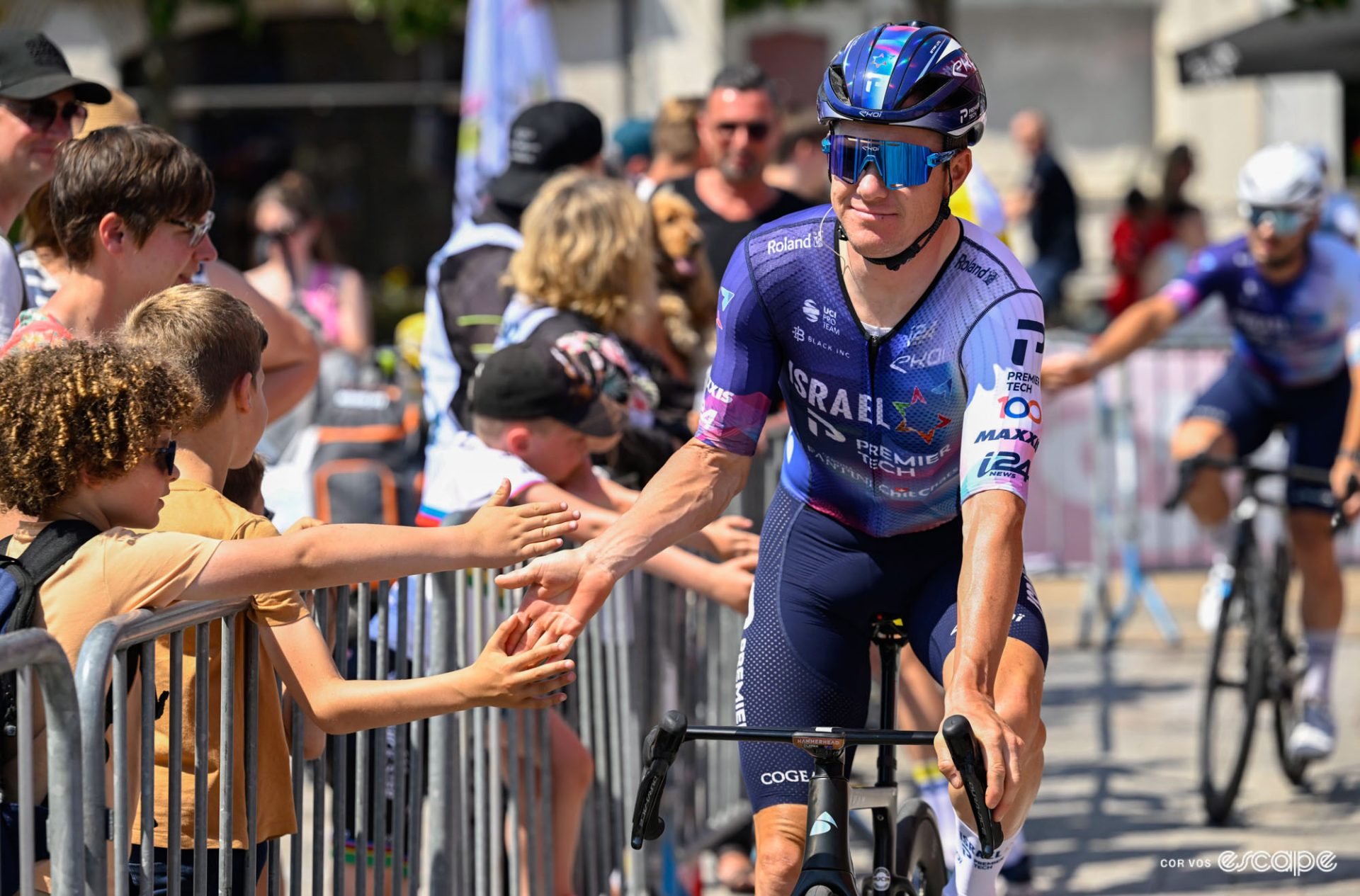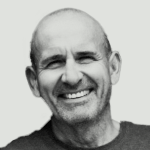With a professional career dating back to 2009, Simon Clarke is one of the most seasoned campaigners at this year's Santos Tour Down Under. But dare at your peril to dismiss his impact on a bike race – whether it be for his benefit or for his fellow riders on the Israel-Premier Tech team.
Clarke, 37 and the fifth-oldest rider in this year’s Tour Down Under, is pragmatic about his strength in a peloton laden with young talent. But the Australian still has the physical attributes to mix it with the best, especially when climbing, and has not lost his courage to attack when opportunity knocks. He also has an excellent ability to read road race tactics.
Clarke is one of the most astute riders on the WorldTour and has helped set up many teammates for victory, but his career hasn’t entirely been in service of others. Now and then, all the ingredients align to work in his favour too.
Clarke’s career highlights include a photo-finish stage victory in the Tour de France of 2022 in his first year with Israel-Premier Tech, and in 2013 in the team time trial when he rode for Orica-GreenEdge. He also has stage wins in the Vuelta a España – one in 2012 when he also took home the best climbers’ jersey, and another in 2018. Other prominent results by him include a second place in that 2019 Amstel Gold Race behind Dutchman Mathieu van der Poel, and seventh in the 2013 Worlds Road Race in Florence.
But for Clarke, his 2022 Tour success on the 157 km fifth stage from Lille to Wallers Arenburg in northern France – a Paris–Roubaix-referencing stage that included 19 km of cobblestones – remains the highlight of his career.
Clarke won it by a whisker in a sprint over Dutchman Taco van der Hoorn and two other breakaway companions. It was a fitting repayment for the faith shown by Israel-Premier Tech, who had signed him at the last minute after the dramatic folding of the team he was contracted to, Qhubeka-NextHash.
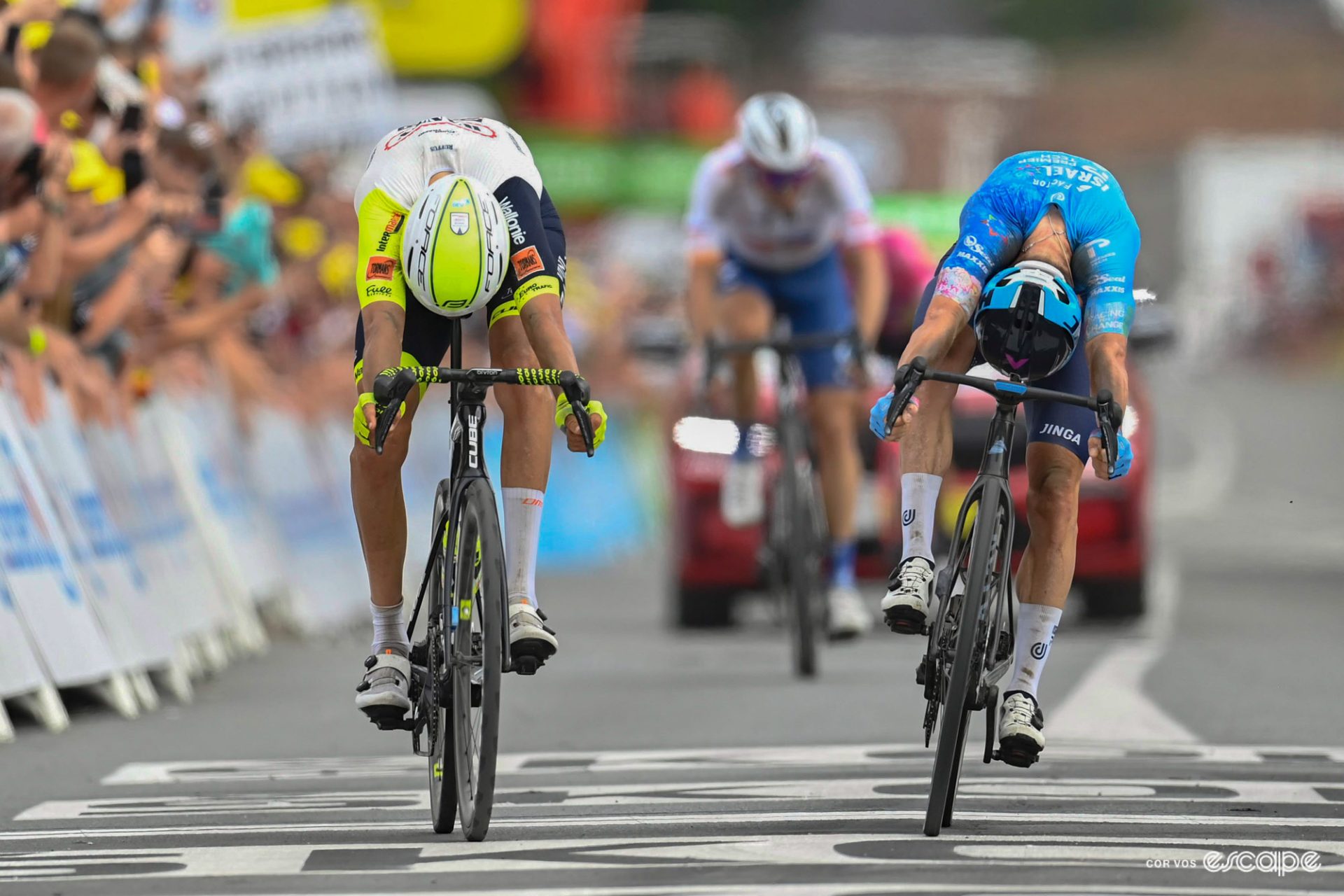
In the space of several months, Clarke went from facing the prospect of his career ending prematurely to the top of the podium in the world’s biggest and most prestigious bike race.
Clarke’s eyes still brighten when he recalls that Tour win. “It was one day where experience in your back pocket really helped,” he told Escape at the Tour Down Under this week. “On a standard stage, it might have been more of a power race, but on a stage like that a lot of experience went into achieving that result.
“I was fortunate that a few stars aligned. I was in the break and it all lined up. I've had some memorable days, but that stage … you can't beat winning. At the Tour it was pretty special.”
When the Tour Down Under began on Tuesday, Clarke’s intent was to help his team’s three options for the overall classification – Corbin Strong, George Bennett, and Stephen Williams.
“I feel the condition is quite good, but normally in Tour Down Under [the aim is] to support the talent that we have here, particularly even more so this year,” Clarke said.
Clarke was not concerned about the tour possibly becoming one in two parts, with the first four days suited for the sprinters, and Saturday and Sunday for the climbers and most likely to determine the race overall with respective finishes on Willunga Hill and Mount Lofty.
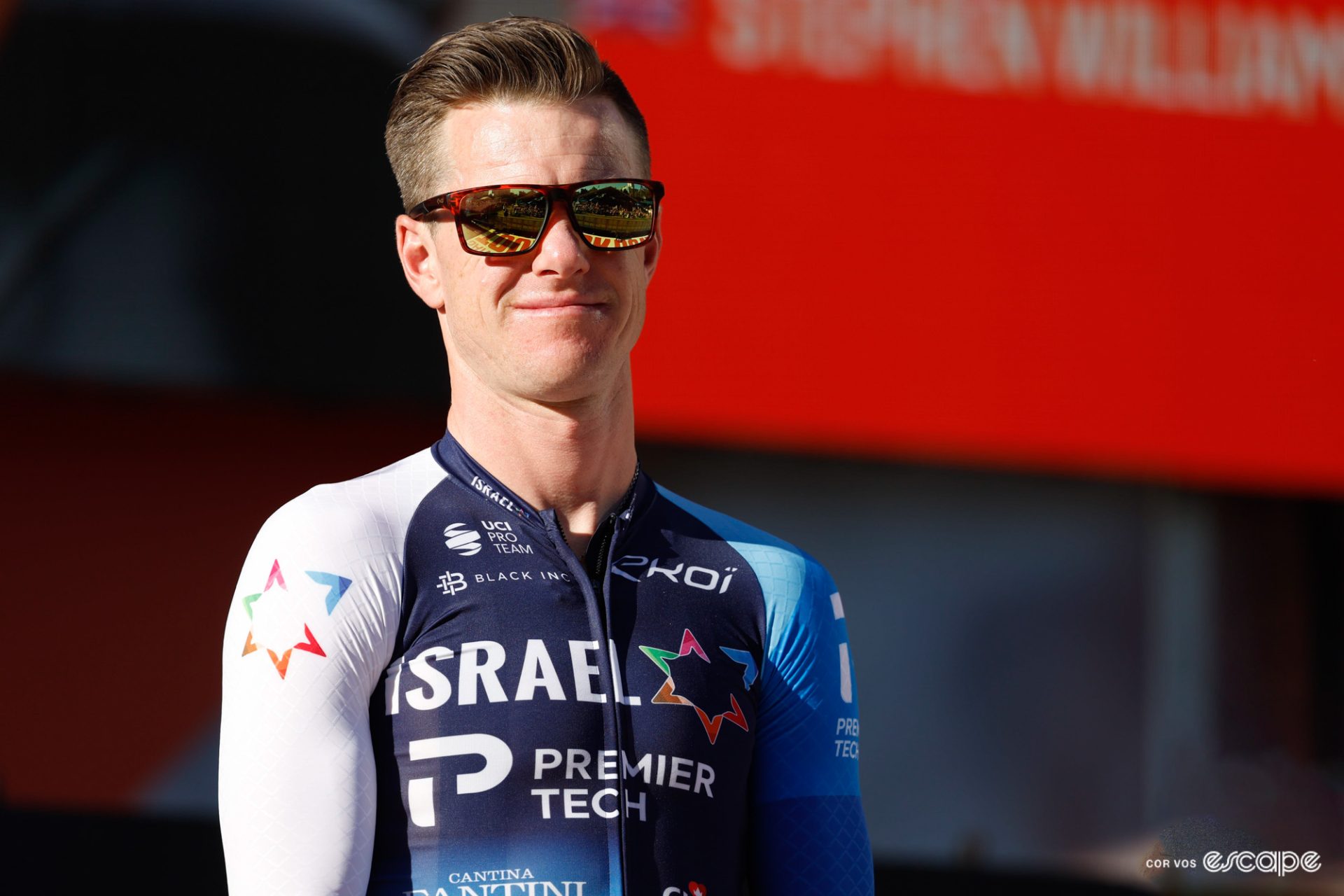
For Clarke, every day in a race is a new opportunity for those with the smarts to see a race-winning chance when others cannot. “There's no benefit in trying to characterise the race too much because that gives you an opportunity to get caught off guard,” said Clarke.
“We race more day by day. Every day you need to be on your toes, particularly this year where there is quite an open field. There's not really any super standout favourites.”
Asked if he will get his chance to race for himself, Clarke said: “We'll see how we go. I'm not getting any younger and younger generations are just getting better and better, but I'm always there ready to go. I always approach races like that with an open mindset and I do my job and then if those roles change, we'd race and I'm always ready to pull the trigger.”
After the Tour Down Under, Clarke will focus on the Belgian one-day classics in the hilly Ardennes, then the Giro d’Italia. He is on the long list for selection in the Australian road team for the Olympics, but with only three slots available he is realistic about his chances.
Olympics or no Olympics, Clarke will still push on and make the best of every race that he starts this season. Longevity in a professional cycling career is seemingly becoming rarer in the WorldTour where a growing number of the major stars are from a younger generation.
Asked for the secret behind the longevity of his career, Clarke said: “Lifestyle, living, creating a sustainable and repeatable rhythm, a lifestyle where you can push the limits in a way that you can then recover and repeat without going over the top and then paying for that later. But you’ve got to try and be better every year, because everyone else is getting better.
“The other thing I've really tried to do is evolve with the times. It's easy when you have experience trying to think the old ways are the better way, but actually, often they’re not. With the older generation, some have trouble adapting to new ways. I've always made an effort to adapt to the latest and best ways. That helps us stay relevant and stay in the game.”
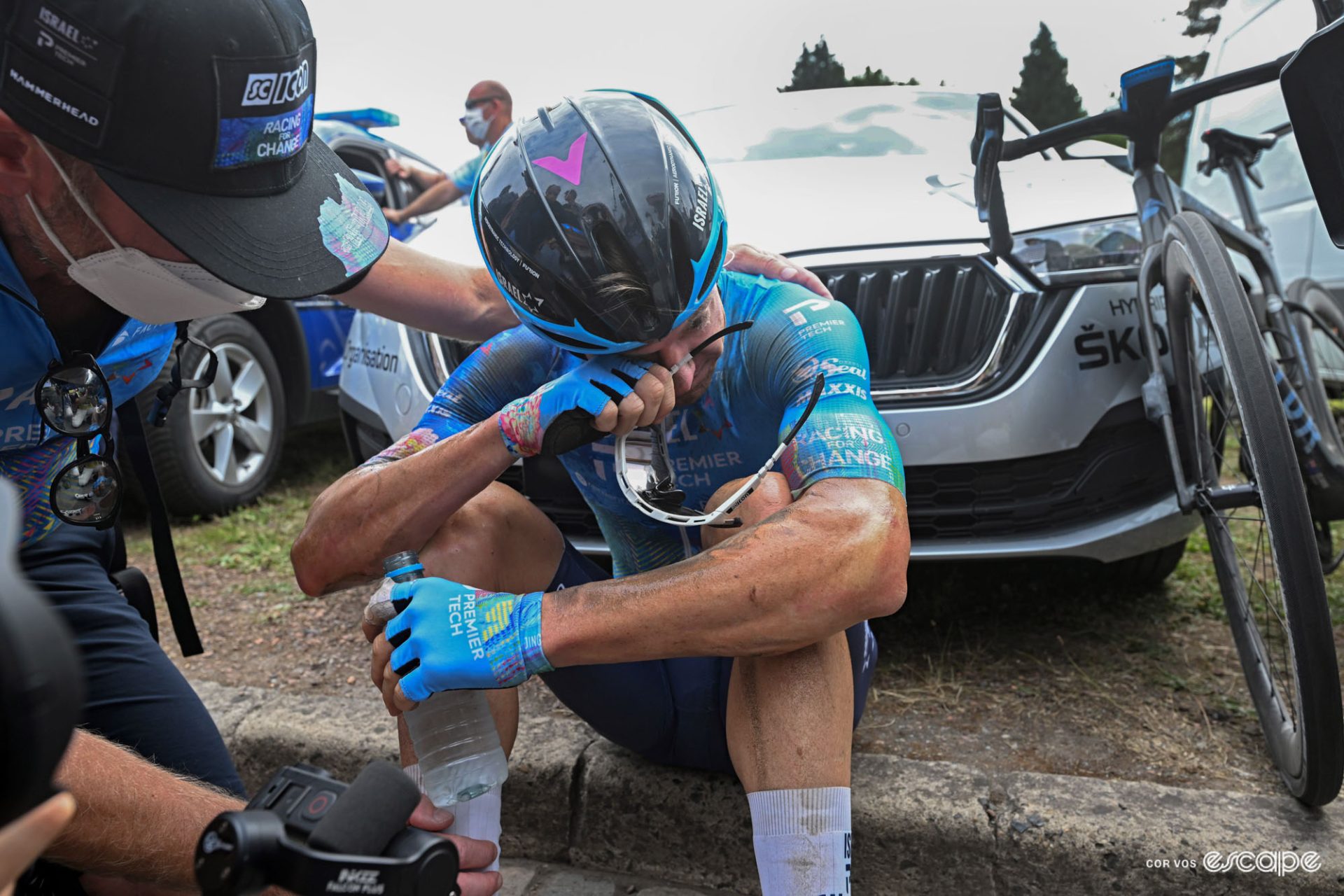
Clarke admits that finding himself without a contract after the 2021 season was a jolt. The prospect of his career ending on terms beyond his control did not sit easily with him.
“It was quite a frustrating time because I had an ongoing contract with Qhubeka, then they folded after the transfer window,” said Clarke. “Then there were no spots left. I risked not having a job, not necessarily because I wasn't good enough, but because of circumstances.
“If I'd been looking for a team in the transfer window and no one wanted me, maybe then I would have thought, ‘OK, maybe my time's up.’ But I knew it wasn't and that really put a fire in my belly to prove that I'm still relevant and can still compete at the highest level.
“Fortunately, Israel had a spot left and were willing to take me on. So, when the opportunity came, I really tried to deliver for them to show my appreciation for what they did for me.”
Clarke’s message to anyone who faces a set-back to their dreams, whether they be professional or personal is to try, try and try again … so long as the desire is there.
And if that is not always clear? As Clarke put it: “You’ve got to want it, and you’ve got to want it enough. Some people may think they want it, but then there is wanting it, and not taking no for an answer until you get it. That is what I live by, I suppose.”
Did we do a good job with this story?

